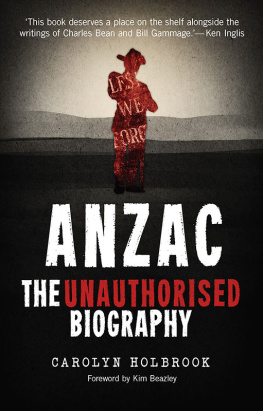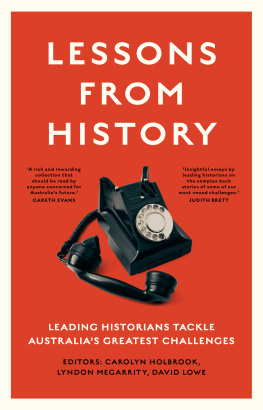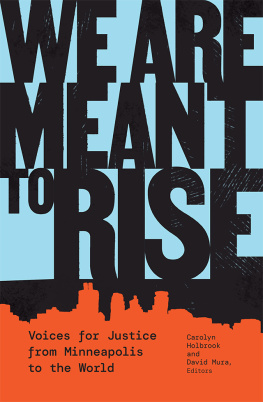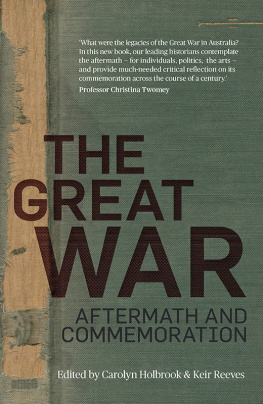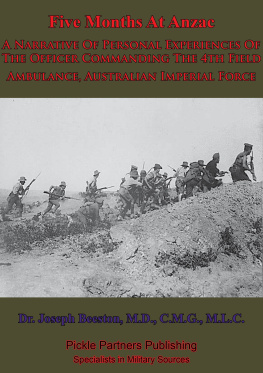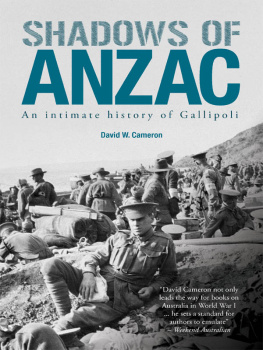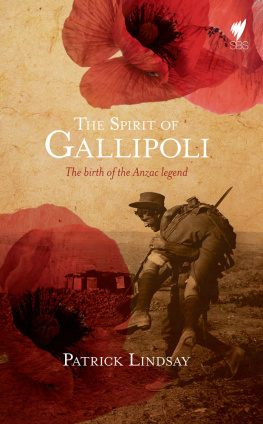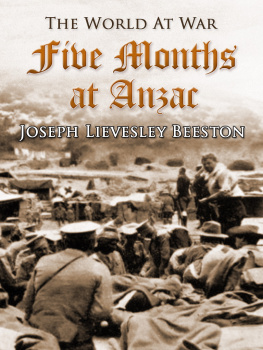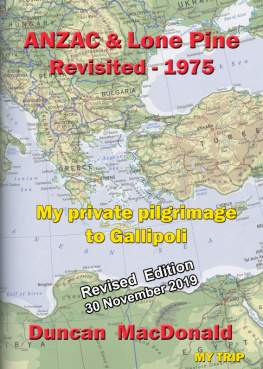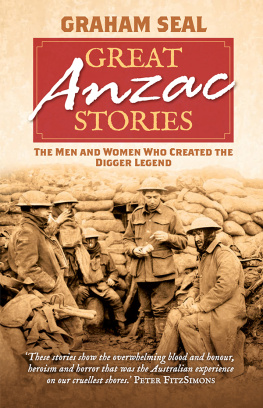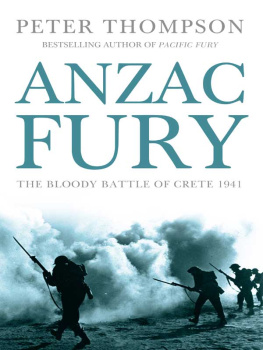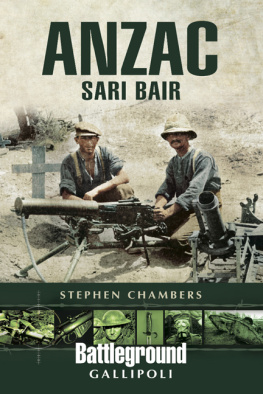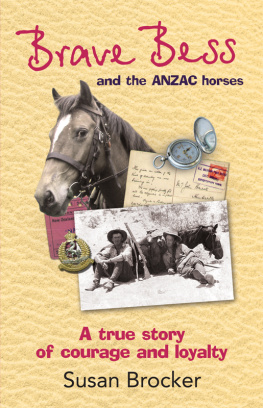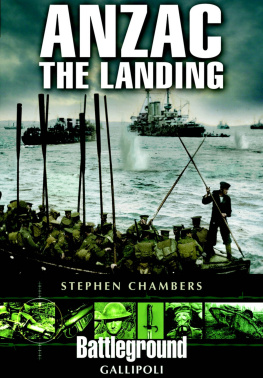ANZAC
THE UNAUTHORISED BIOGRAPHY
CAROLYN HOLBROOK is a research fellow in the School of Social Sciences at Monash University. She completed a PhD in history at the University of Melbourne in 2012, for which she was awarded the Dennis Wettenhall Prize for the best thesis in Australian history and the Australian Historical Associations Serle Award in 2014. She has previously worked as a food and wine journalist and a policy adviser in the Department of the Prime Minister and Cabinet.
Praise forAnzac, the Unauthorised Biography
For the centenary of Anzac, Carolyn Holbrook has written an adventurous and judicious study of how for good and ill a war on the other side of the world has entered into Australian consciousness. She ranges widely and digs deep to track what scholars, creative writers, politicians, filmmakers and families have made of the phenomenon. With great skill she charts the ebb and flow of remembrance public and private, and ends with an eloquent plea for the separation of myth from history. The book deserves a place on the shelf alongside the writings of Charles Bean and Bill Gammage.
Ken Inglis
A fine and robust attack on the birth-of-the nation view of Australia, Gallipoli and the Great War. We are in Holbrooks debt for helping us see how important it still is to honour those who died in that catastrophic war without honouring war itself.
Jay Winter
You must be clever to write a book like this. You must know the history and the evidence it depends on, then go behind it to explore the historians who wrote it, then go beyond them to the times, places and circumstances which led them to write as they did. Carolyn Holbrook does this brilliantly, illuminating the vast difference between the past and history. What use is history?, people ask. They ask it because history encloses them tightly, like breathing, but in this splendid book Carolyn shows how artfully history is made, and how much it makes us who we are.
Bill Gammage
Memories of the Great War are all about us powerful, insistent and all too often unreflective. Carolyn Holbrook looks back over its commemoration over the past hundred years in histories and memoirs, novels and films, ceremonies and monuments, orations and arguments to show a richer and more complex legacy. There have been many accounts of the Anzac legend: now we have its history.
Stuart Macintyre
At last a biography of the bastard son of war and nationalism. Now we understand what a life hes led, and what a dance hes led us
Peter Stanley
Anzac, the Unauthorised Biography is the first comprehensive study of how the history of the Great War has been written during the twentieth century. It makes a significant contribution to the study of the war in Australia as it charts the shifting understandings and responses to the war over time. Eloquently written, this compelling and important book provides an insightful and perceptive reflection on how each generation has interpreted the meaning of the war and how it has shaped understandings of Australian history over several decades.
Joy Damousi
ANZAC
THE UNAUTHORISED BIOGRAPHY
CAROLYN HOLBROOK

A NewSouth book
Published by
NewSouth Publishing
University of New South Wales Press Ltd
University of New South Wales
Sydney NSW 2052
AUSTRALIA
newsouthpublishing.com
Carolyn Holbrook 2014
First published 2014
This book is copyright. Apart from any fair dealing for the purpose of private study, research, criticism or review, as permitted under the Copyright Act, no part of this book may be reproduced by any process without written permission. Inquiries should be addressed to the publisher.
National Library of Australia
Cataloguing-in-Publication entry
Author: Holbrook, Carolyn, author.
Title: Anzac, the unauthorised biography / Carolyn Holbrook.
ISBN: 9781742234076 (paperback)
9781742247007 (ePDF)
9781742241814 (ePub/Kindle)
Notes: Includes bibliographical references and index.
Subjects: World War, 19141918 Historiography.
World War, 19141918 Australia Historiography.
World War, 19141918 Participation, Australian.
Nationalism and collective memory Australia.
Australia Historiography.
Dewey Number: 940.394

Design Josephine Pajor-Markus
Cover design Xou Creative
Extract from Vance Palmers poem The Farmer Remembers the Somme (1920) on page 86 is used with permission of the Estate of Vance Palmer.
CONTENTS
FOREWORD
The Hon. Kim Beazley, AC
World War I, the Great War, changed everything. It was in essence European but it manifested in the Middle East, Africa and Asia though with less salience than its global successor, and in many ways outcome, World War II. It cut loose empire, destroying nationalisms in Europe, and sowed their seed in the increasingly challenged remnant European empires. It spawned massive challenges to democracy from left and right in communism and fascism. It opened the door to global superpower status to the United States, giving political pre-eminence adding to what was, for a long time, economic pre-eminence to that nation.
With so many massive changes wrought globally it is only to be expected that a small though heavily engaged participant like Australia would see its society and its thinking deeply influenced. This has been the case and the key symbol of that influence is Anzac Day. Carolyn Holbrook treads old ground anew in her unauthorised biography. Each generation of Australian social, political and military historians walks to this altar and lays at its feet their accusations, their frustrations, their satire, their fury and their homage. Its mythical strength is our Hotel California. You can check out but you can never leave. In a lengthy political and now short diplomatic life I have witnessed a multiplicity of national days and veterans days. None has so powerfully, movingly, reverentially gripped a national mind as Anzac Day, despite the fact that Australians are the most laidback and irreverent of folk. Americans are identified by Australians as harbingers of triumphant nationalism and idealisers of the serving men and women. They are. Compare, however, their commemoration of Memorial Day and the 4th of July with Anzac Day and they dont begin to climb the hill we sit atop. They do around Thanksgiving but that has a totally different mood and purpose.
Particularly at our foundation we could regard ourselves as among the worlds great social experiments. We had become so famous for social advance after our first decade that Lenin felt he had to write a cautionary pamphlet about us lest our siren song seduce the European socialist movement. Though our devotion to the mother country was great and reinforced an intensely racialist, survivalist outlook, we struggled to break away from her military institutions with our own. We established early a fundamentally different view from Britain of the grand strategy of AsiaPacific security. Our much greater concerns about Japan wove through that relationship up to 1951. Though in the solemn umbra of the consequences for our society of the Great War, we remained an innovative and creative nation with a pragmatic temper. So powerfully, however, has Anzac gripped our imagination, in a hundred years no commemoration of any achievement has been able to supplant it. Perhaps if Federation day was not the 1st of January, there might have been a chance there. Certainly our celebration of Federations centenary was impressive. However for most Australians that celebration was a learning experience. For Anzac, we know. There are down periods, as Carolyn Holbrook reveals, but the magnetic power remains. Revival is easy.
Next page
